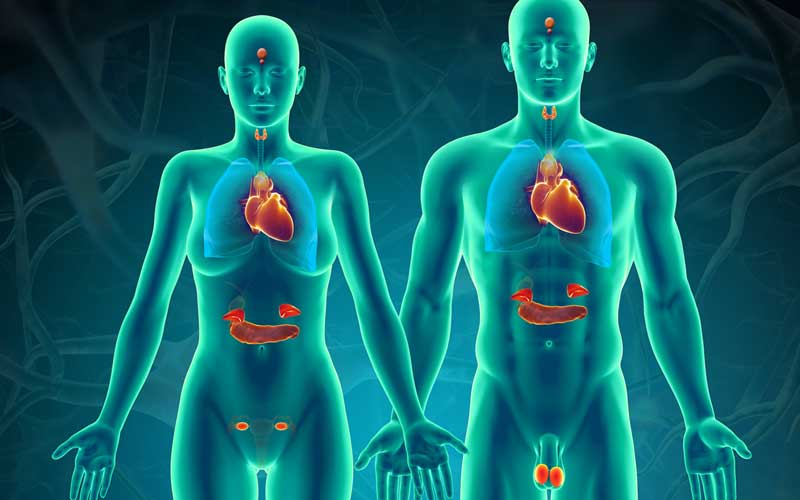Healing the Hormonal System: Types of Endocrinology Treatments
- dana abdalla
- Aug 14, 2024
- 3 min read
1. Hormone Replacement Therapy (HRT)
Hormone replacement therapy is medication that contains female hormones. You take the medication to replace the estrogen that your body stops making during menopause. Hormone therapy is most often used to treat common menopausal symptoms, including hot flashes and vaginal discomfort. Hormone therapy has also been proved to prevent bone loss and reduce fracture in postmenopausal women (Mayo Clinic 1).
HRT may:
Relieve hot flashes and night sweats (vasomotor symptoms)
Help you sleep better
Ease vaginal dryness and itching
Make sex less painful
Help prevent fractures caused by osteoporosis (thinning bones)
Make some women less likely to have heart disease
Lower your chances of dementia
Risks of HRT:
Heart disease
Stroke
Blood clots
Breast cancer
These risks vary on age, type of hormone therapy, and health history. To determine if hormone therapy is a good treatment option for you, talk to your doctor about your individual symptoms and health risks. Be sure to keep the conversation going throughout your menopausal years.
2. Insulin Therapy
Insulin therapy often is an important part of diabetes treatment. It helps keep blood sugar under control and prevents diabetes complications. It works like the hormone insulin that the body usually makes.
If your body can make enough insulin, you don't have diabetes. In people who don't have diabetes, insulin helps control blood sugar levels. After you eat, your body breaks down nutrients called carbohydrates into a sugar called glucose. Glucose is the body's main source of energy. It's also called blood sugar. Blood sugar goes up after you eat.When glucose enters the bloodstream, the pancreas responds by making insulin. Then insulin allows glucose to enter the body's cells to give them energy (Mayo Clinic 1).
It also helps store extra glucose for energy. After you eat, insulin levels are high. Extra glucose is stored in the liver. This stored glucose is called glycogen.Between meals, insulin levels are low. During that time, the liver releases glycogen into the bloodstream in the form of glucose. This keeps blood sugar levels within a narrow range (Mayo Clinic 1).
Although common side effects include:
initial weight gain as the cells start to take in glucose
blood sugar that drops too low or hypoglycemia
rashes, bumps, or swelling at an injection site
anxiety or depression
a cough when taking inhaled insulin
Insulin is a prescription medication. A person should speak to their doctor about:
choosing the right type of insulin for them
possible side effects or interactions with other drugs
self-administering insulin safely and effectively
3. Glucocorticoid Therapy
Glucocorticoids are powerful medicines that fight inflammation and work with your immune system to treat a wide range of health problems. Your body actually makes its own glucocorticoids. These hormones have many jobs, such as controlling how your cells use sugar and fat and curbing inflammation. Sometimes, though, they aren’t enough. That’s when the man-made versions can help (Melinosky 1).
Glucocorticoids treat many conditions that are caused by inflammation, such as:
Asthma
Chronic obstructive pulmonary disease (COPD)
Allergies
Rheumatoid arthritis
Osteoarthritis
Crohn’s disease and other types of inflammatory bowel disease
Eczema and other skin conditions
Multiple sclerosis
Tendinitis
Lupus
Common problems include:
Weight gain
Feeling very hungry
Water retention or swelling
Mood swings
Blurred vision
Feeling nervous or restless
Trouble sleeping
Muscle weakness
Acne
Stomach irritation
It’s usually safe for most people to take glucocorticoids for a little while. But using them for a long time can cause health problems, including:
Osteoporosis, when bones get weaker and break easily
High blood pressure
Diabetes
Cushing's disease
Sources:
Assessed and Endorsed by the MedReport Medical Review Board





